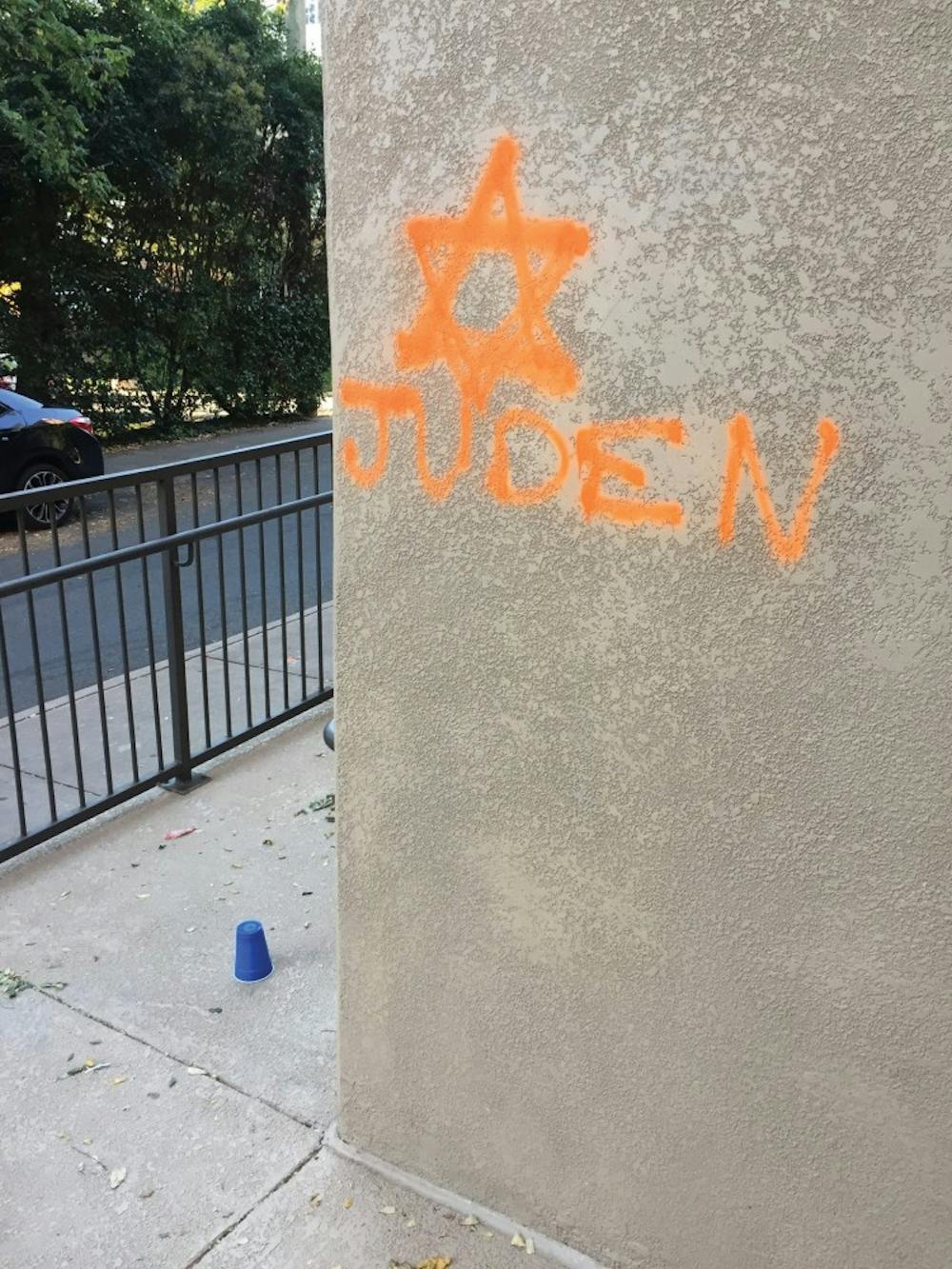Graffiti displaying anti-Semitic messages was found on the outside of the GrandMarc apartment complex on 15th street Sunday. Student Council and the Jewish Leadership Council condemned the graffiti in a statement, referring to it as “hate speech.”
“The imagery painted at GrandMarc is intended to intimidate Jewish students and make them feel uncomfortable in their community,” the statement said.
University Law Prof. Robert O’Neil said although “affected groups and many others may be profoundly affected or harmed by such expression,” from a legal perspective, these types of messages are not necessarily deemed to be “hate speech.”
“There simply is no comprehensive definition for ‘hate speech,’” O’Neil said in an email statement. “Most of what's described as ‘hate speech’ is simply offensive and/or hurtful but not legally actionable.”
This is because the First Amendment generally protects the expression of this type of speech, John Whitehead, president of the Rutherford Institute, said.
“If the University sought to punish any responsible University student for this act on the basis of the content of the speech, the First Amendment would protect the student,” Whitehead said in an email statement. “The First Amendment protects even offensive and racist speech and the government’s opposition to that speech may not form the basis of any government-imposed sanction.”
Whitehead added that Doe v. Rector & Visitors of George Mason University — a February federal court case — clarified “racist speech, even on a university campus, is constitutionally protected.”
However, any individuals responsible for this specific incident would not be protected under the First Amendment because the Constitution does not allow one to deface either public or private property, Whitehead said.
One of Charlottesville’s ordinances makes it a criminal offense to deface private property, which is punishable by a $2,500 fine, Whitehead said.
Additionally, the evidence of bias in the message “could be a basis for an enhanced punishment under a Virginia statute,” Whitehead said.
“It is a crime to enter upon the property of another for the purpose of damaging it, and ‘If a person intentionally selects the property entered because of the race, religious conviction, color or national origin of the owner, user or occupant of the property, the person shall be guilty of a Class 6 felony,’” Whitehead said, quoting one of Virginia’s laws regarding crime against property.
This type of crime would result in at least six months of jail time with a minimum of 30 days served.
The graffiti was comprised of the word “Juden” and the Star of David, both of which have historical contexts in Nazi Germany and other Nazi-occupied countries.
Associate Prof. Gabriel Finder, the Ida and Nathan Kolodiz director of Jewish Studies, said “Juden” is the plural form of the German word “Jude” which means “Jew.”
“Nazis and their sympathizers in Nazi Germany and Austria would paint the word ‘Jude’ on storefront windows of stores owned by Jews to intimidate and warn non-Jewish Germans and Austrians not to make purchases in Jewish-owned stores,” Finder said in an email statement.
Likewise, the Star of David, which is a significant centuries-old symbol in Jewish culture, was used for the same purpose, said Finder.
Both the word “Juden” and the Star of David were further used to ostracize and persecute the Jewish people living in Nazi-occupied countries when these symbols acted as a form of identification.
“When Nazi officials in Germany and in Nazi-occupied countries decreed that Jews had to wear armbands or patches sewn to their outer clothing to identify them as Jews, the armbands and patches had to inscribed with the word ‘Jude’ or with a Star of David,” Finder said.
Finder added that both “Jude” and “Juden” are “perfectly good words,” but their meanings have been misconstrued by the Nazis who “purposefully misused them, often in combination with ugly epithets, when they abused, humiliated and denigrated Jews.”







